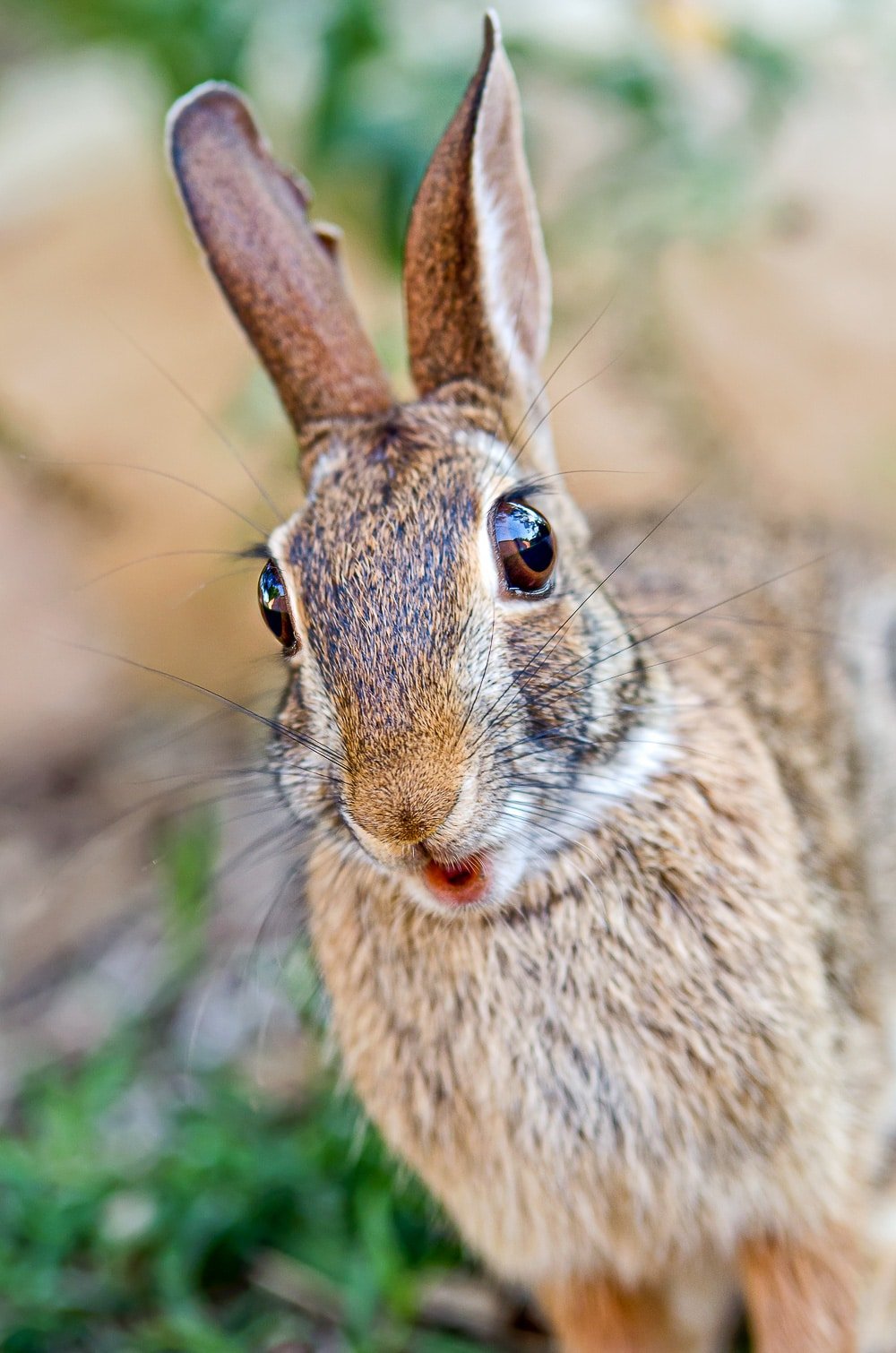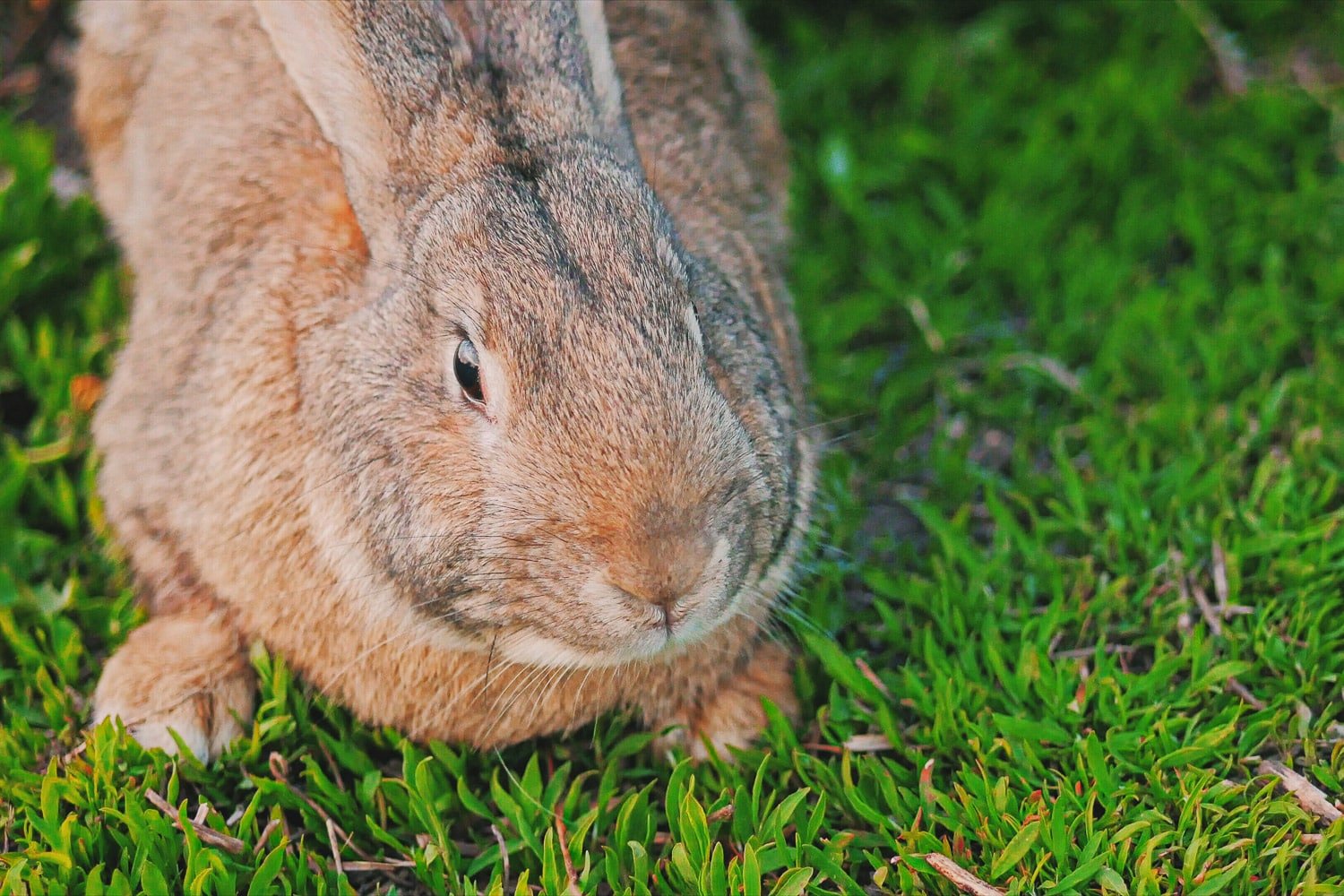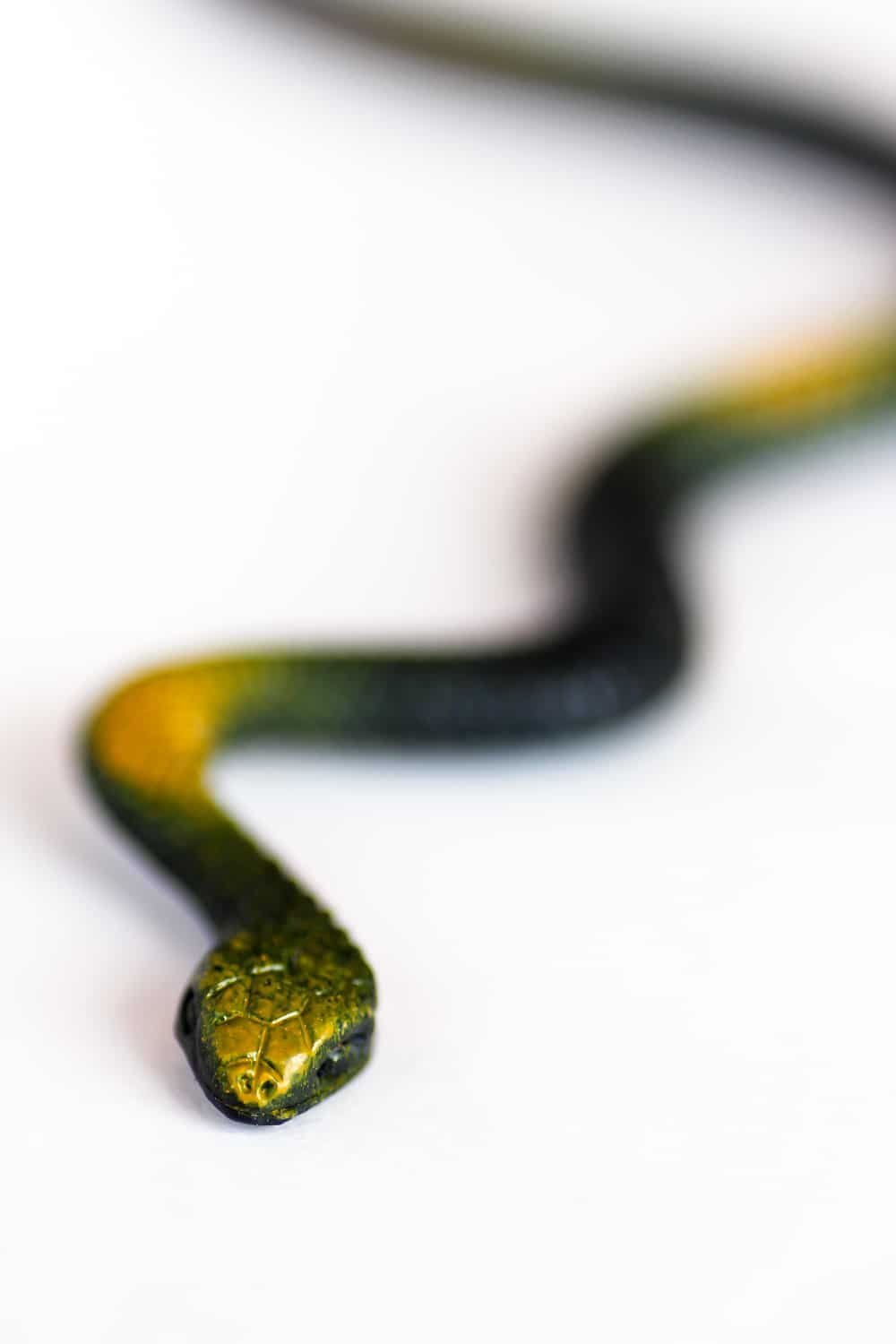How To Keep Rabbits Out of Garden Beds – Naturally
Our article below offers all the tips and tricks we’ve tried and tested to how keep rabbits out of garden spaces naturally. Gardening can be a therapeutic hobby that brings you closer to nature, but dealing with pesky rabbits munching on your precious plants can quickly turn into a not-so-fun adventure.

This article will equip you with practical tips and natural solutions to keep rabbits at bay and protect your plants. From identifying signs of rabbit damage to implementing effective deterrent methods and understanding long-term strategies, you’ll discover everything you need to reclaim your vegetable garden and enjoy a thriving, rabbit-free area.
Tips to Identify Signs of Rabbit Damage
To identify rabbit damage, look for the following signs:
- Small, round pellets that resemble cocoa puffs
- Bite marks on leaves, stems, and flowers
- Girdling on trees and shrubs (when rabbits chew off the bark around the base of woody plants)
- Burrows or tunnels in the ground
- Disturbed soil around plants
- A rabbit eats your lettuce in front of you because they don’t care what you think.
If you notice these signs, you likely have rabbits in your garden.

Prevent rabbits with natural Solutions
Natural solutions are essential for several reasons:
- First, they are generally safer for the environment, pets, and children than chemical solutions.
- Second, they are often more sustainable and cost-effective in the long run.
- Third, they help preserve your garden ecosystem’s natural balance by relying on natural repellents and predators to keep rabbits away.
Using natural solutions, you can protect young plants in your garden from rabbit damage while promoting a healthy, thriving ecosystem.

Deterring Rabbits Starts With Adding Physical Barriers
The most effective way to keep rabbits out of your garden is to create physical barriers that prevent them from accessing your plants. You can use several physical barriers to keep rabbits out, including fences, chicken wire, and rabbit-proof enclosures.
Install a Garden Fence
Installing a fence around your garden is an effective way to keep rabbits out. Choose a wall that is at least 2 feet tall and bury the bottom of the fence at least 6 inches deep to prevent rabbits from digging underneath it. Ensure the fence is sturdy and has no gaps or holes that rabbits can squeeze through.
Fences are expensive. We’re getting quotes now on putting a 400 linear ft fence around our vegetable garden to keep our deer problem out, but we’ve also designed it so the rabbits can’t get in either. The quotes are alarming and painful.
But if you can’t afford a fence, you have many more options for keeping those rascally rabbits out of your garden beds.
Add Chicken Wire to an Already-established Fence
Adding chicken wire to your fence can deter rabbits from entering your garden. Attach the chicken wire to the rails using zip ties or staples, ensuring it is at least 3 feet tall and buried 6 inches deep.
By creating physical barriers around your garden, you can prevent rabbits from accessing your plants and causing damage. Choose the type of barrier that works best for your garden size and needs, and make sure it is secure and sturdy.
Add Plant Cages To Protect Individual Plants
Rabbits are herbivores and enjoy eating a variety of plants. Here are some plants that rabbits are known to enjoy:
- Lettuce: Rabbits enjoy the tender leaves of lettuce, especially varieties like romaine, butterhead, and looseleaf.
- Carrots: Rabbits love carrots, which are high in sugar and nutrients. However, they may be unable to access them if grown in raised beds or containers.
- Radishes: Rabbits enjoy the leaves and roots of radishes.
- Beans: Rabbits enjoy the tender leaves and pods of beans, especially when they are young and tender.
- Peas: Rabbits love the young shoots and pods of peas and will beeline for new seedlings.
- Cabbage: Rabbits enjoy cabbage leaves very much. If you have rabbits, protect your cabbage! For more cabbage-growing info, check out our guide to cabbage companion plants.
While these plants are known to be rabbits’ favorites, it’s important to remember that rabbits will eat various other plants if they are hungry enough. Protecting your garden with physical barriers, natural repellents, and companion planting can help prevent rabbits from damaging your plants.

Electronic Rabbit Repellant
An electronic rabbit deterrent will repel rabbits from gardens, lawns, or other areas where they may be causing damage. These devices work by emitting high-pitched sounds, flashing lights, or both, which are unpleasant to rabbits and can deter them from approaching the area.
Most electronic rabbit deterrents use ultrasonic sound frequencies, which are above the range of human hearing, to create an uncomfortable sensation for rabbits. When rabbits hear these high-pitched sounds, they may become confused or disoriented and decide to avoid the area altogether.
While some people report success with electronic rabbit deterrents, their effectiveness can vary depending on various factors, including the size of the area and the level of rabbit activity.
It’s worth noting that rabbits can quickly adapt to new stimuli. Therefore, while an electronic rabbit deterrent may be effective initially, it may become less effective over time as rabbits become used to the device. Additionally, some rabbits may be more stubborn or persistent than others and may not be deterred by these devices.

Use Natural Repellents
In addition to physical barriers, you can use several natural repellent ways to keep rabbits out of your garden. These include plants, homemade sprays, and natural predators.
Plants That Repel Rabbits
Several plants naturally repel rabbits. Here are some of the most effective rabbit-resistant plants:
- Bee Balm
- Catmint
- Alliums
- Hyssop
- Daffodil
- Lavender (lavender is handy when planted in pots and moved around to where you need it)
- Salvia
- Yarrow
- Garlic
- Hot peppers
Add these plants around the perimeter or interspersed among your other plants to discourage rabbits from entering your garden.

Homemade Rabbit Repellent Sprays
You can also make homemade sprays to repel rabbits. Some effective ingredients include cayenne pepper, garlic, mint, rosemary, and lemon balm. Mix these with water and spray them on and around your plants. Be sure to reapply after rainfall.
Important Notes:
Even natural sprays can harm beneficial insects. Spray when pollinators are no longer in your garden, such as early morning or evening.
Always test the spray on a small area of your plant first to ensure it does not damage it.
Natural Predators
Another natural way to keep rabbits out of your garden is to encourage natural predators. These can include hawks, owls, foxes, and snakes.
Encourage these predators by providing habitat and nesting sites like birdhouses. You can also create a more natural and diverse garden by incorporating native plants and wildflowers, which will attract a variety of insects and animals.
Add garden decoys like fake rubber snakes, coyotes, foxes, hawks, and owls. Fake snakes are particularly effective IF snakes are natural predators of rabbits in your area.
An excellent gardening trick I picked from another gardener was using a green garden hose and letting it wind and rest outside the garden. The rabbits think the hose is a snake! Yeah, that’s why I left the hose out again…

Add Scents Around The Garden That Rabbits Hate
Rabbits have a keen sense of smell and certain scents they are known to dislike. Here are some scents that rabbits may find unpleasant:
- Human Hair
- Dog hair and cat hair.
- Predator urine
- Irish spring soap (your mileage may vary; we tried, but it didn’t work, but other gardeners claim it does!)
- Dryer lint
- Peppermint
- Hot Pepper
- Lemon Balm
- Rosemary
- Dried Sulphur
It’s worth noting that while these scents may be unpleasant to rabbits, they may not be enough to deter them completely.
Why We Do Not Recommend Using Moth Balls
Mothballs have naphthalene or paradichlorobenzene, toxic chemicals harmful to humans and animals. When used in a garden, mothballs can leach these chemicals into the soil and water, harming beneficial insects and animals and contaminating the food grown in the garden.
In addition to being harmful to the environment, mothballs are not effective at deterring many garden pests, including rabbits. While they may have a strong odor that some animals find unpleasant, rabbits and other animals can quickly become accustomed to the smell and ignore it.

Make Your Garden Unattractive to Rabbits
In addition to physical barriers and natural repellents, you can make your garden unattractive to rabbits by removing potential homes and food sources and implementing methods like companion planting.
Remove Potential Rabbit Homes
Rabbits like to make their homes in tall grass, brush piles, and other areas with thick, dense vegetation. Removing these potential homes can make your garden less attractive to rabbits. Keep your lawn mowed and remove any piles of brush or debris. If you have a large property, consider creating a designated area away from your garden for rabbits to live in, and place a food source there to keep them at home and not wandering into your garden.
Remove Potential Food Sources
Rabbits are attracted to gardens because they provide a ready (and tasty!) food source. By removing potential food sources, you can reduce the likelihood of rabbits entering your garden. This simple method includes removing fallen fruits and vegetables, regularly harvesting crops, and keeping your garden clean and debris-free.

Use Companion Planting
Companion planting is planting certain plants together to benefit each other. Some plants can repel rabbits, while others can attract natural predators. For example, planting onions, chives, or leeks alongside your other plants can help deter rabbits, as these plants have a strong odor that rabbits don’t like.
- Learn More: See our primer on companion planting.
Expert Tips
If you’re looking to protect your garden from rabbits, there are several strategies you can use:
- Install a fence: Place a fence around your garden at least 2 feet tall and bury the bottom at least 6 inches deep to prevent rabbits from digging underneath.
- Use chicken wire: Attach it to existing fences or create plant cages to protect individual plants from rabbit damage.
- Incorporate rabbit-resistant plants: Plant bee balm, catmint, or alliums in your garden to deter rabbits naturally.
- Use natural repellents: To discourage rabbits from entering the garden, use natural repellents such as garlic and cayenne pepper sprays or scents like peppermint or predator urine.
- Encourage natural predators: Attract hawks, owls, and snakes by providing habitat and nesting sites in your garden.
- Keep the garden clean: Mow the lawn regularly and remove brush piles or tall grass to keep the garden clean and free of potential rabbit homes.
- Implement companion planting strategies: Interplant rabbit-resistant plants with those vulnerable to rabbit damage to create a less appealing environment for rabbits.
- Harvest crops regularly: Harvest crops regularly and remove fallen fruits and vegetables to reduce the availability of food sources for rabbits in the garden.
- Avoid harmful methods: Avoid using techniques such as trapping or mothballs, which can be ineffective and detrimental to the environment.
- Monitor your garden regularly: Watch for signs of rabbit activity and adjust your strategies to deter them effectively.
FAQ
Look for signs such as small, round pellets resembling cocoa puffs, bite marks on plants, girdling on trees and shrubs, burrows or tunnels in the ground, and disturbed soil around plants.
Rabbits are attracted to tender vegetation, including lettuce, carrots, radishes, beans, peas, and cabbage. However, they may also eat a variety of other plants if food is scarce.
Physical barriers such as fences (at least 2 feet tall, buried 6 inches deep), chicken wire attached to fences, and plant cages can help prevent rabbits from accessing plants.
If rabbit problems persist, consider consulting with local wildlife experts or extension services for additional advice and assistance. They may offer tailored solutions based on regional factors and specific garden conditions.
It’s important to check local regulations, as some areas may have laws regarding trapping or relocating wildlife. Certain methods may be prohibited or require permits.

Natural and Sustainable Pest Management
Are pests ruining your gardening dreams? Say goodbye to frustration with our ebook on organic pest management! Discover easy, practical solutions for common garden pests and reclaim your garden today.
- Guides for 23 common pests
- over 100 pages of information and tips
- Sustainable, affordable solutions anyone can implement.
Final Remarks
Keeping rabbits out of the garden can be a frustrating challenge for gardeners. But don’t worry; with some creativity and the tips mentioned above. You’ll be able to outsmart those pesky bunnies. And if all else fails, remember that rabbits are like nature’s lawnmowers, so at least your grass will be well-trimmed!
Join The Conversation
Hey there, gardeners! We hope you found our tips for keeping those mischievous rabbits out of your garden helpful and inspiring! The conversation doesn’t end here! Have you got some clever tricks up your sleeve that we missed? Maybe you’ve got a funny story about your battles with bunnies? We’d love to hear from you! Please comment below, share your experiences, or tag us on social media with your rabbit-repelling adventures. Let’s swap stories, share ideas, and help each other in this gardening journey.
Related Posts

Author: Laura Kennedy
Writer & Owner of Little Yellow Wheelbarrow
Editor’s Note: This post was originally published on March 15, 2023, and was updated on March 11, 2024. The update included impoved formatting, expert tips, and FAQs.










